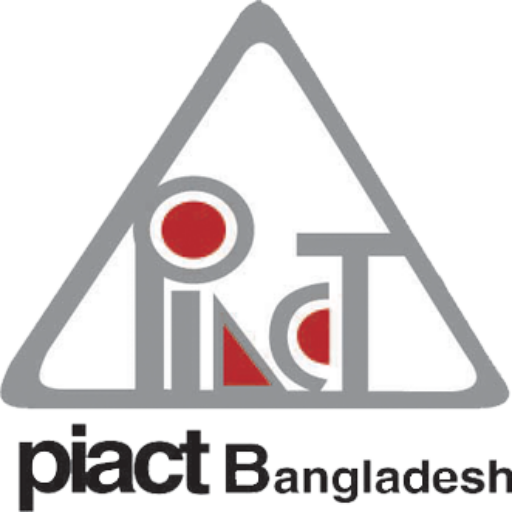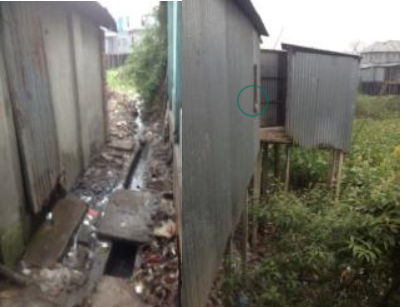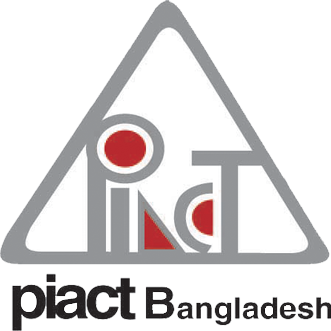Promotion Safe Drinking Water and Sanitary Latrine in Araihazar Upazila
Araihazar Upazila (sub-district) under Narayanganj district is at a distance of 15 kilometers to the North-East of Dhaka City with a population of 376,550. Beginning in 1990, PIACT undertook several programs here over a decade which include Mother and Child Nutrition including providing Zinc Supplementation to malnourished children and promoting breastfeeding, community managed health and nutrition program, non-formal education to school dropout children and promoting safe water and sanitation.
The situation of safe drinking water and sanitary latrine was extremely poor throughout the upazila. In 1993, with support from NGO Forum for drinking water and sanitation, PIACT made the community people aware and mobilized them for drinking safe water and use sanitary latrines. With community participation and at a low cost, PIACT installed 16 tube-wells and 2,500 sanitary latrines in Araihazar upazila. PIACT established a plant for making slab and ring for the sanitary latrine and community people purchased those at a low price (one slab and one ring Tk. 140). Over the time, small traders in the market place borrowed the technology of making slab and ring, and marketed those. The use of safe drinking water and sanitary latrine improved very significantly in Araihazar Upazila and the practice of defecation in open spaces and use of hanging latrine were stopped. Eventually, PIACT gradually phased-out from this activity in the Araihazar upazila.
Promoting Personal Hygiene, Safe Drinking Water and Sanitary Latrine through Non-formal Education

Learning center of Hard to Reach Urban Working Children
Since 1993, PIACT has been implementing non-formal Adult Education Program in rural upazilas as well as non-formal education for Hard to Reach children in urban slums throughout the country. Among many health and nutrition issues, the lessons included personal hygiene, safe drinking water and use of sanitary latrine. Students influenced their families as well as communities to make arrangement for safe drinking water and installing sanitary latrines. The students and teachers together visited the families to advocate for this.

Over the decade, the adult literacy program directly covered over 66,000 students’ families under 19 districts. The Hard to Reach Education Program covered directly about 19,000 students’ families in the slum areas of 8 City Corporations including Dhaka.

Flipbook
Developing BCC/IEC Materials on Safe Drinking Water and Use of Sanitary Latrine
Over the 35 years of PIACT, it developed series of BCC/IEC materials on issues including personal hygiene, safe water and sanitary latrine. Most recently with support from Health Education Bureau under the Directorate General of Health Services, PIACT developed Flipchart, Booklet, Leaflet and Brochure on three specific issues: Personal hygiene, drinking safe water and use of sanitary latrine. These were printed and distributed to155 health education resource centers at health services hospitals under 43 districts.
Promotion of Safe Drinking Water and Sanitary Latrine in Daulatdia Brothel and its Surrounding Communities


Drainage & Toilet in Daulatdia Brothel
Daulatdia Brothel is the largest brothel in Bangladesh with about 2500 sex workers (SWs). Another 2600 are living in the brothel who include children of SWs, shop keepers and other interest groups. On average, 5000 clients visit this brothel everyday. PIACT has been implementing program in this brothel since 2000 to develop capacity of SWs and their children to integrate them in the mainstream of the society providing education and skill development training. Establishing basic human rights of the SWs to save them from oppression and exploitation and to enjoy better life is another development activity of PIACT in Daulatdia brothel.
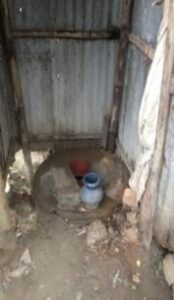
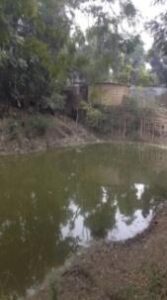
Unhygienic latrine in the bank of a water body in Daulatdia community. This contaminated water is used by the community when it is full of water during rainy season.
The brothel is densely populated. Over the time PIACT installed many tube-wells and sanitary latrines and gave efforts to keep the brothel environment clean with the participation of the self-help groups. But yet the drainage system at some spots in the brothel and the facility for safe drinking water and sanitary latrine are very inadequate compared to the actual needs.
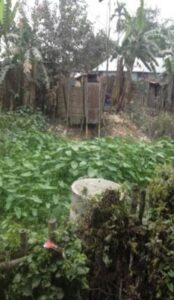
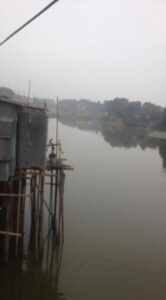
Hotels in the railway station collect drinking water from deep tube-well installed in the water body surrounding which there are lots of unhygienic latrines
About 10,000 people are living adjacent to the Daulatdia brothel where the water and sanitation situation is extremely bad. There is a railway station beside the brothel. About 15,000 people from allover the country pass through this railway station everyday. There is practically no toilet facility here for the passengers and many passengers are use open space for urination and defecation making the environment extremely bad. There a number of toilets and restaurants where the passengers drink highly contaminated water and carry the germs of waterborne diseases at homes spread allover the country.
Construction of Sanitary Latrines and Bathrooms in Refugee Camp, Dhaka
Background
Linguistic and national minority group named, “Bihari” is living in Bangladesh since 1947. Basically, they are the Urdu speaking Muslims migrated from different parts of India to Bangladesh (the then East Pakistan) during the partition of India and Pakistan in 1947 and after India – Pakistan War of 1965. After liberation, the group opted for repatriation to Pakistan and a few of them were able to migrate to Pakistan but a good majority of them failed to leave Bangladesh and are so stranded. In 1972 the International Committee for Red Cross (ICRC) built a number of camps in Bangladesh to assist this community. There are 25 camps in Mirpur and 6 in Mohammadpur in Dhaka City.
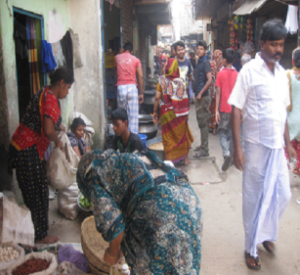
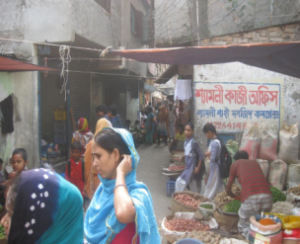
Inside view of Mohammadpur Bihari Camp
The Problem
Around 45,000 people are living alone in the 6 camps of Mohammadpur. There are various issues which require attention for redress. One of the major problems is their sanitation facilities which require immediate attention. Very few toilets and bathrooms are in operation for a large number of Bihari community which are not at all hygienic and environment friendly.
So, the environment of the camps always remains very dirty and unhygienic for their health. The situation can be improved through the targeted intervention which will provide the inhabitants of Camps including surrounding people with a relatively better hygienic and environmental condition.
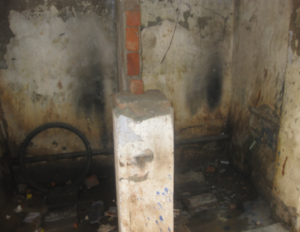
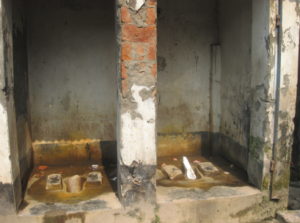
Picture of broken toilets
A Situation Analysis
A situation analysis through spot survey was undertaken in 2012 on water and sanitation condition at the 6 camps in Mohammadpur. The purpose was to understand the problem of water and sanitation facilities for possible interventions to improve upon the hygienic condition of the camps which would address the rights to water, sanitation and hygiene (WASH) of the “Biharies” as a human-being.
There were 136 sanitary toilets and 30 water source bathrooms for around 45,000 population residing in the 6 refugee camps at Mohammadpur. All the 136 sanitary latrines were in a dilapidated condition. It was found that over 80% slabs of the latrines were broken, water source at the latrine was absent in 95% toilets, the structures were broken and were hazardous and none of the latrines was functioning without manual intervention. At least 35 latrines were not at all functioning.
Bathrooms were without water source and all the platforms were broken and water taps were absent or broken. People including women took their bath by pulling water from other taps which created havoc and contributed significantly to unfriendly environment. The women had to take difficult choice to respond to natural call at night. There were 30 such bathrooms which were badly broken needing renovation. Building new water & sanitary installation were almost impossible because of non-availability of suitable lands.
PIACT Intervention: Construction of 6 Toilets and 6 Bathrooms
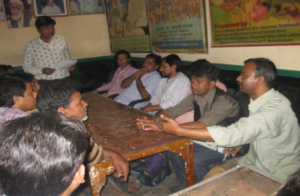
Meeting with the community
With the support of Canada Fund for Local Initiative (CFLI), 6 toilets and 2 bathrooms were reconstructed in early 2013. A local implementation committee was formed involving beneficiaries and local civil society members to supervise and monitor the implementation activities.
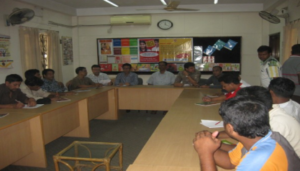
Project Ending and Handing Over Meeting with the community
In the project end meeting the beneficiaries expressed gratitude and humbly requested to rebuild/repair the remaining toilets and bathrooms.
